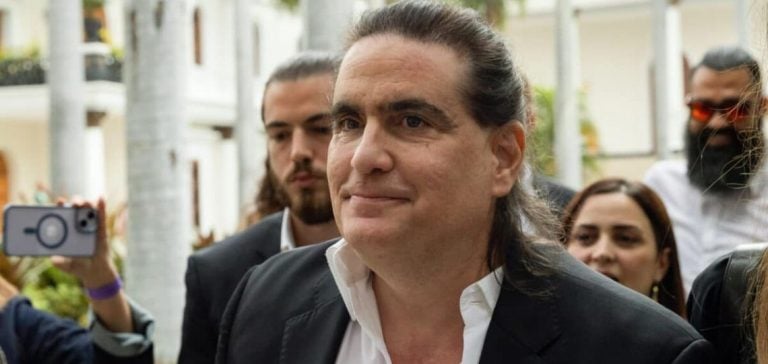Alex Saab, a Colombian businessman and intermediary of the Venezuelan government, has been appointed Minister of Industry and National Production by President Nicolas Maduro. This appointment follows the resignation of Pedro Rafael Tellechea, less than two months after his own appointment, citing health issues.
Context of the Appointment
Alex Saab was released by the United States last December as part of negotiations aimed at exchanging prisoners. His release was widely publicized in Venezuela, where he was welcomed with enthusiasm. As an intermediary, Saab is considered to have played a key role in the relations between the Venezuelan government and foreign entities, particularly in circumventing sanctions imposed by the United States.
Succession of Pedro Rafael Tellechea
Pedro Rafael Tellechea, former CEO of Petróleos de Venezuela, S.A. (PDVSA) and ex-Minister of Petroleum, resigned due to health issues. His brief tenure in the government was marked by attempts to revitalize the oil sector, although his efforts were criticized by several observers for limited effectiveness. Saab’s appointment is seen as a continuation of previous strategies aimed at strengthening government control over the national industry.
Role of Alex Saab in the Government
As Minister of Industry and National Production, Alex Saab will be responsible for overseeing the development and management of national industries. His experience as an intermediary and his knowledge of sanction circumvention mechanisms will be major assets in promoting the new economic model advocated by Maduro’s government. Saab will also need to navigate a complex economic environment marked by structural challenges and international pressures.
Implications of Sanctions and Circumvention Strategies
Since 2019, the United States has intensified its sanctions against Venezuela, notably by imposing an embargo on American imports of Venezuelan oil. Alex Saab is recognized as a central figure in implementing strategies to bypass these restrictions. He orchestrated the “Iranian route,” allowing Iran to supply Venezuela with fuel via tankers, thereby circumventing international blockades.
International Relations and Extradition
Alex Saab’s extradition to the United States sparked significant tensions between Caracas and Washington. Accused of transferring $350 million (€285 million) out of Venezuela to foreign accounts, Saab faced up to 20 years in prison. His release was secured in exchange for the release of Americans detained in Venezuela, thereby enhancing the dynamics of bilateral negotiations between the two countries. His appointment as minister underscores the Venezuelan government’s reliance on his expertise and international network.
Impact on the Venezuelan Industrial Sector
Saab’s appointment comes at a crucial time for Venezuela’s industrial sector, which is striving to recover after years of economic difficulties. Under Maduro’s leadership, the government aims to diversify the economy and reduce dependence on oil. With his experience and connections, Saab could play a pivotal role in implementing the necessary reforms to boost national production and attract foreign investments, despite the challenges posed by international sanctions.






















